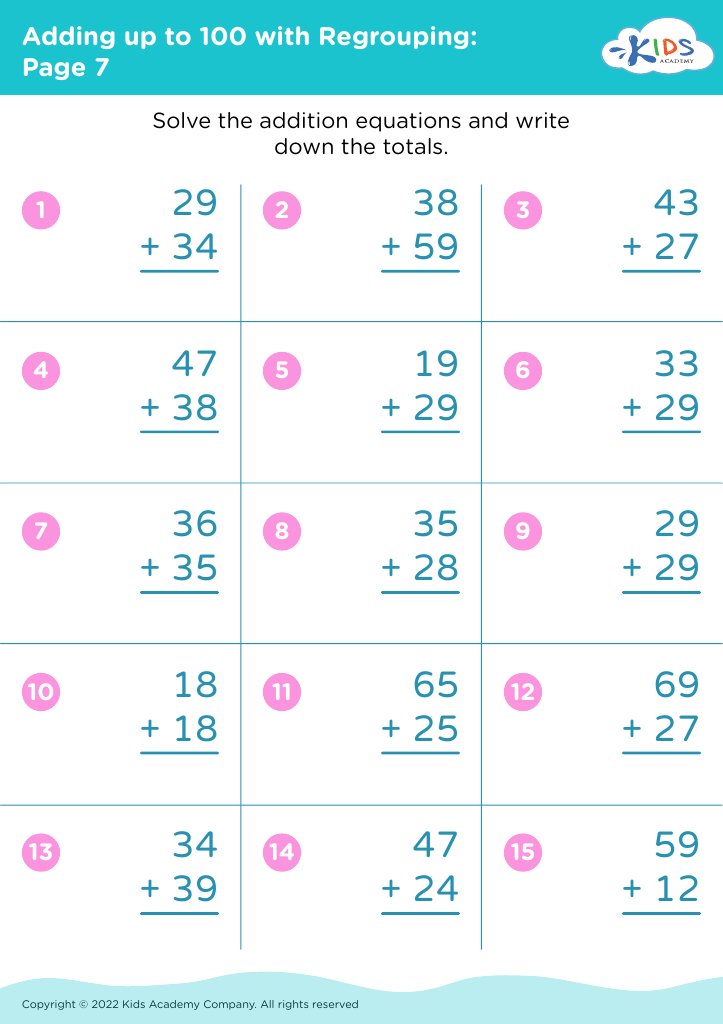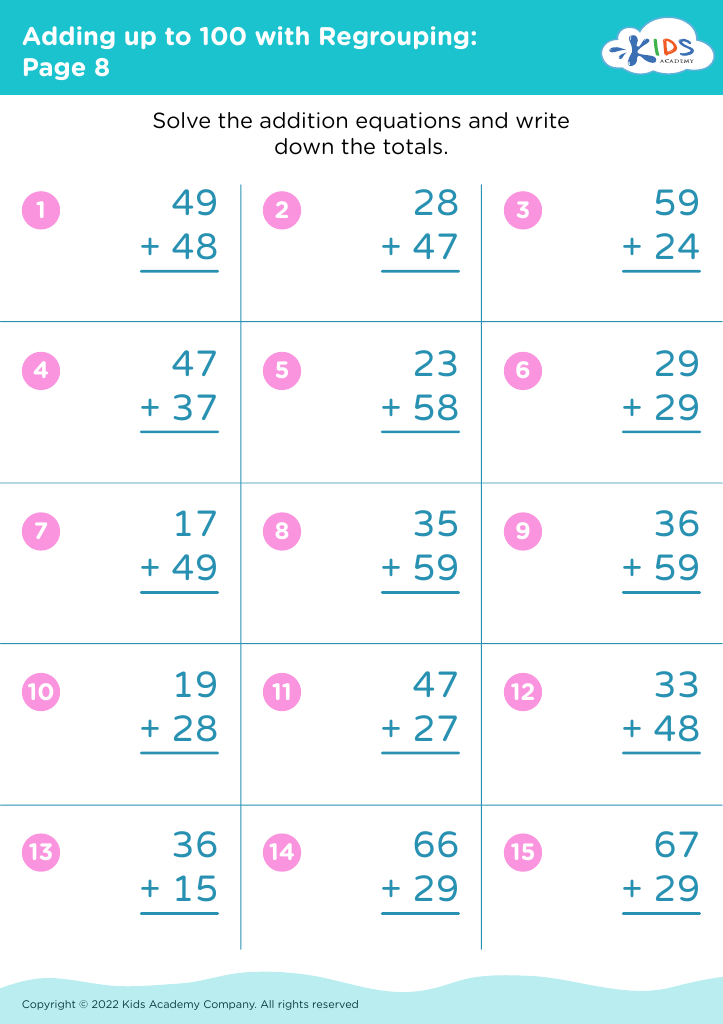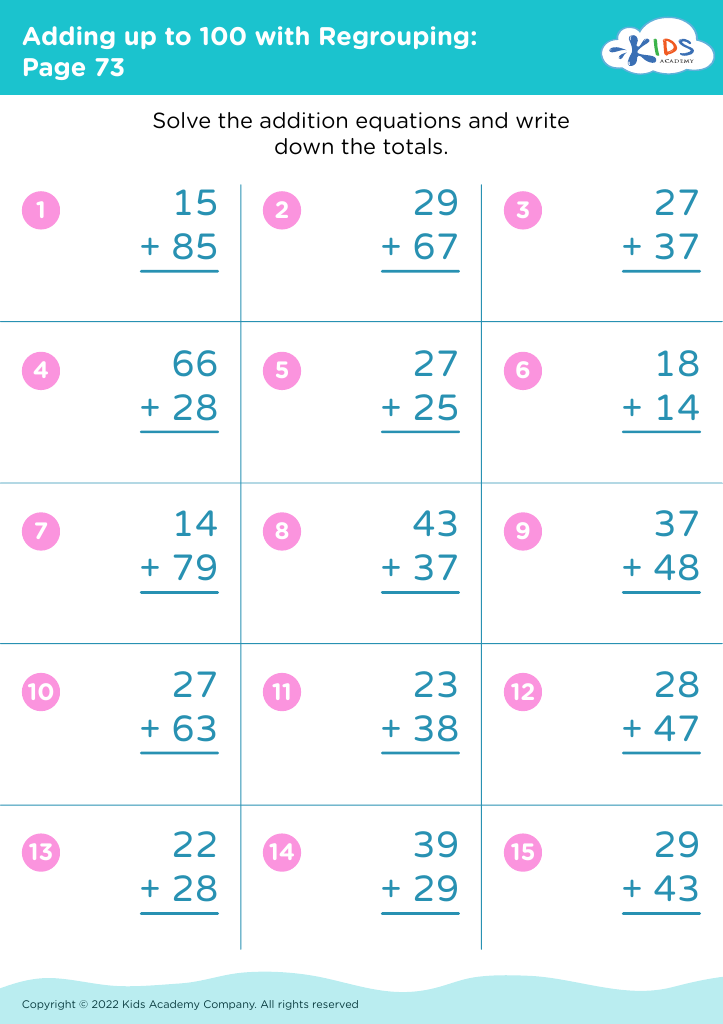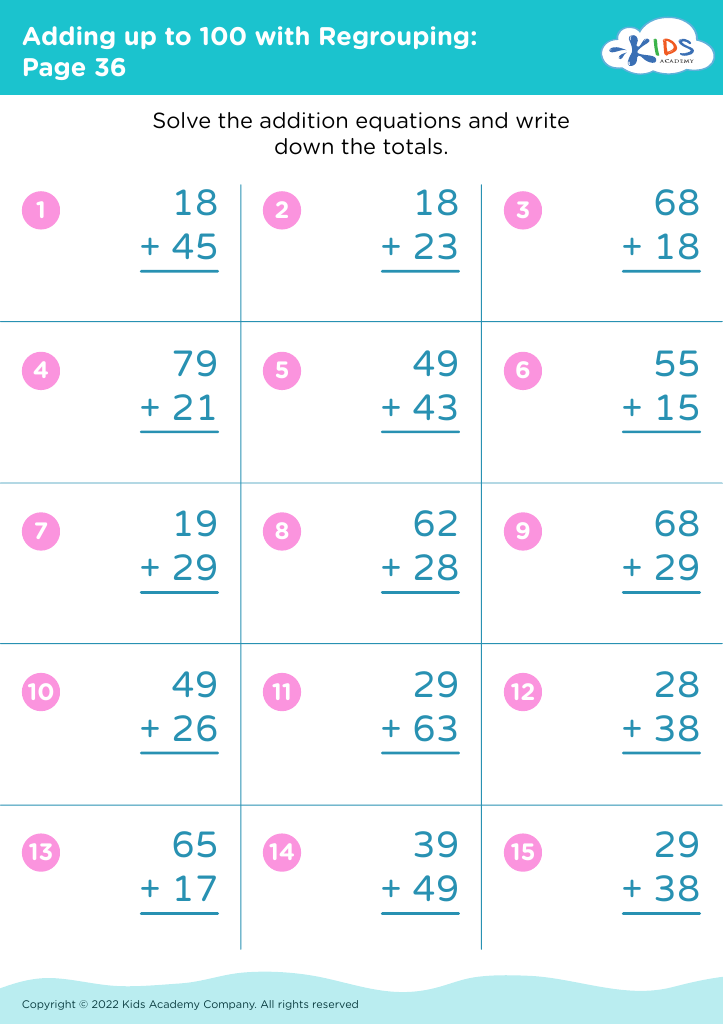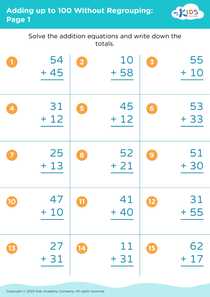Number Recognition Adding up to 100 with Regrouping Worksheets for Ages 3-7
12 filtered results
-
From - To
Explore our engaging "Number Recognition Adding up to 100 with Regrouping Worksheets" designed for children ages 3-7. These interactive worksheets help young learners develop essential math skills by recognizing numbers and mastering addition techniques, including regrouping. Through fun exercises, kids will enhance their number identification, counting abilities, and addition skills, all while building confidence in their math capabilities. Ideal for preschool and early elementary classrooms, these resources provide an effective way to introduce and reinforce key concepts in a playful manner. Perfect for parents and educators seeking to develop foundational math skills, ensuring a strong start to lifelong learning!
Number recognition and the ability to add up to 100 with regrouping are foundational skills essential for children ages 3-7. These concepts serve as building blocks for future mathematical understanding, fostering not only proficiency but also confidence in young learners. Early exposure to number recognition helps children identify, understand, and manipulate numbers effectively, creating a strong numerical literacy that they will rely on throughout their education.
Mastering addition with regrouping teaches children how to handle larger numbers and introduces them to the concept of place value—integral for understanding multi-digit operations. This skill is crucial for problem-solving and critical thinking, enabling students to tackle more complex math topics as they advance through grades.
Moreover, engaging children in these mathematical processes enhances their cognitive development, aligning with early childhood education goals. It also cultivates a positive attitude towards math, countering common anxiety associated with the subject later in life.
Parents and teachers play vital roles as facilitators in this learning process. By nurturing these skills in a supportive environment, they bolster children’s abilities to interact with math confidently, paving the way for academic success across disciplines and equipping them with necessary life skills.





